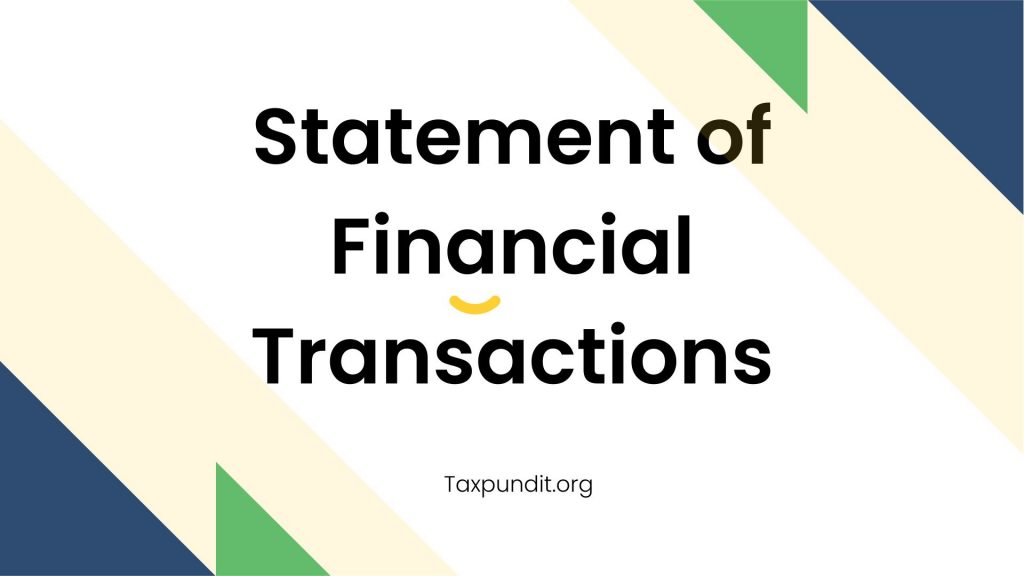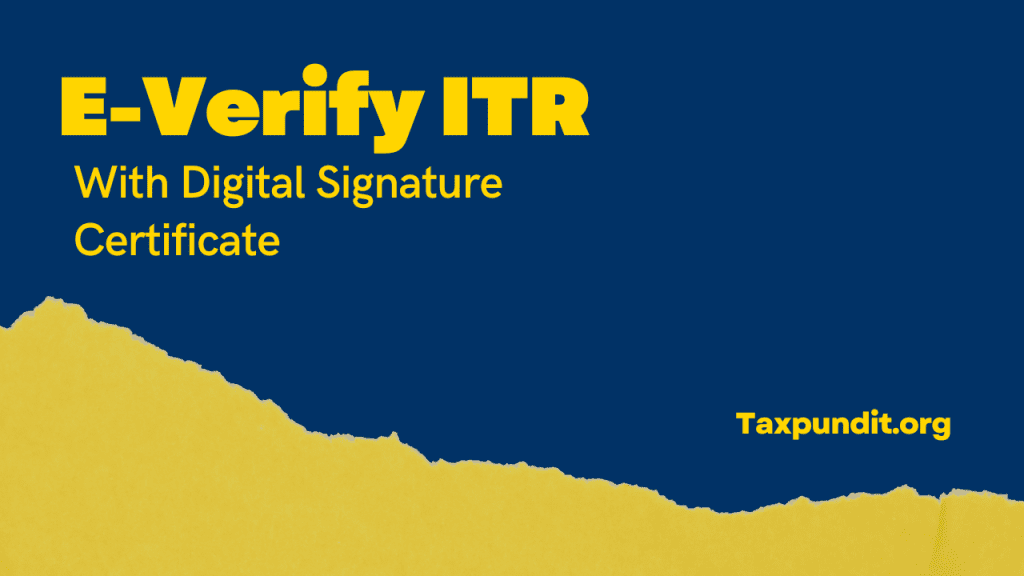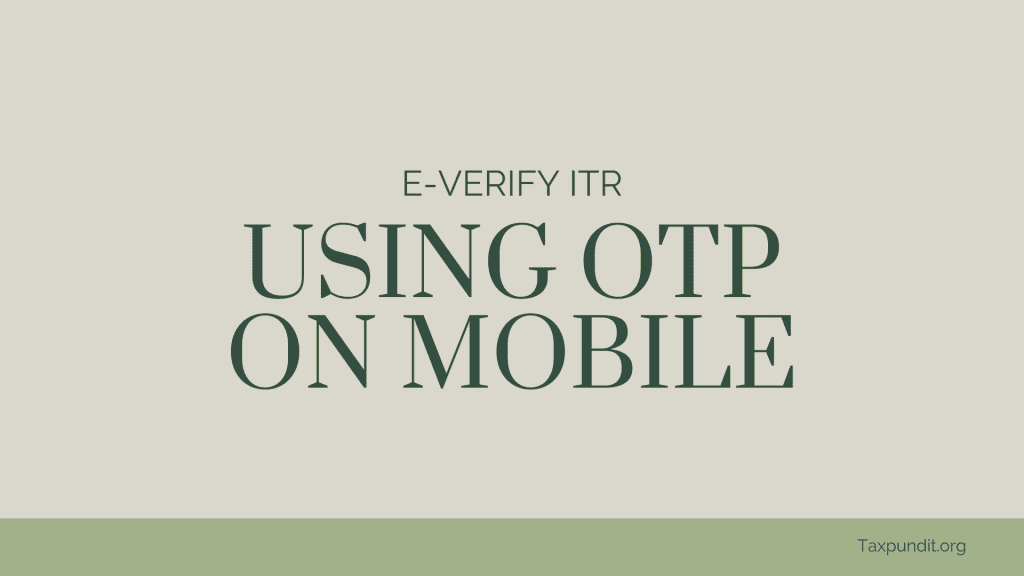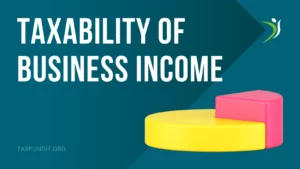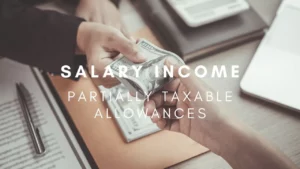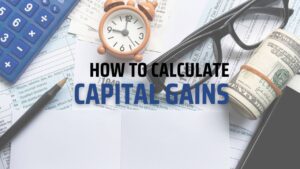Tax shall be payable in advance during any financial year, in accordance with the provisions of sections 208 to 219, in respect of an assessee’s current income i.e. the total income of the assessee which would be chargeable to tax for the assessment year immediately following that financial year [Section 207].
Provision in the Income Tax Act, 1961
Under section 208, obligation to pay advance tax arises in every case where the advance tax payable is Rs. 10,000 or more.
In case of senior citizens who have passive source of income like interest, rent, etc., the requirement of payment of advance tax causes genuine compliance hardship. Therefore, in order to reduce the compliance burden on such senior citizens, exemption from payment of advance tax has been provided to a resident individual-
(i) not having any income chargeable under the head “Profits and gains of business or profession”; and
(ii) of the age of 60 years or more.
Such senior citizens need not pay advance tax and are allowed to discharge their tax liability (other than TDS) by payment of self-assessment tax.
Computation of Advance Tax
(1) An assessee has to estimate his current income and pay advance tax thereon. He need not submit any estimate or statement of income to the Assessing Officer, except where he has been served with notice by the Assessing Officer.
(2) Where an obligation to pay advance tax has arisen, the assessee shall himself compute the advance tax payable on his current income at the rates in force in the financial year and deposit the same, whether or not he has been earlier assessed to tax.
(3) In the case of a person who has been already assessed by way of a regular assessment in respect of the total income of any previous year, the Assessing Officer, if he is of the opinion that such person is liable to pay advance tax, may serve an order under section 210(3) requiring the assessee to pay advance tax.
(4) For this purpose, the total income of the latest previous year in respect of which the assessee has been assessed by way of regular assessment or the total income returned by the assessee in any return of income for any subsequent previous year, whichever is higher, shall be taken as the basis for computation of advance tax payable.
(5) The above order can be served by the Assessing Officer at any time during the financial year but not later than the last date of February.
(6) If, after sending the above notice, but before 1st March of the financial year, the assessee furnishes a return relating to any later previous year or an assessment is completed in respect of a later return of income, the Assessing Officer may amend the order for payment of advance tax on the basis of the computation of the income so returned or assessed.
(7) If the assessee feels that his own estimate of advance tax payable would be less than the one sent by the Assessing Officer, he can file estimate of his current income and advance tax payable thereon.
(8) Where the advance tax payable on assessee’s estimation is higher than the tax computed by the Assessing Officer, then, the advance tax shall be paid based upon such higher amount.
(9) In all cases, the tax calculated shall be reduced by the amount of tax deductible at source.
(10) The amount of advance tax payable by an assessee in the financial year calculated by –
(i) the assessee himself based on his estimation of current income; or
(ii) the Assessing Officer as a result of an order under section 210(3) or amended order under section 210(4)
is subject to the provisions of section 209(2), as per which the net agricultural income has to be considered for the purpose of computing advance tax.
No reduction of ‘tax deductible but not deducted’ while computing advance tax liability
(i) As per the provisions of section 209, the amount of advance tax payable by a person is computed by reducing the amount of income-tax which would be deductible at source during the financial year from any income which has been taken into account in computing the total income.
(ii) Some courts have opined that in case where the payer pays any amount (on which tax is deductible at source) without deduction of tax at source, the payee shall not be liable to pay advance tax to the extent tax is deductible from such amount.
(iii) With a view to make such a person (payee) liable to pay advance tax, the proviso to section 209(1)(d) provides that the amount of tax deductible at source but not so deducted by the payer shall not be reduced from the income tax liability of the payee for determining his liability to pay advance tax.
(iv) In effect, only if tax has actually been deducted at source, the same can be reduced for computing advance tax liability of the payee. Tax deductible but not so deducted cannot be reduced for computing advance tax liability of the payee.
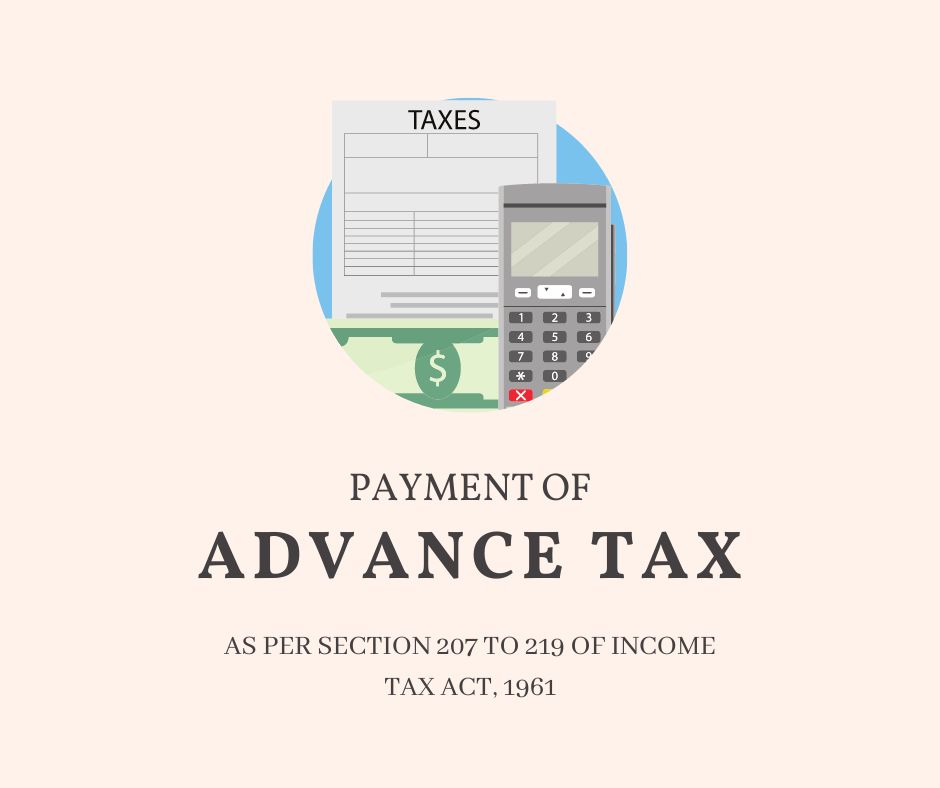
Instalments of advance tax and due dates
Common advance tax payment schedule for both corporates and non-corporates [other than assessees computing profits on presumptive basis under section 44AD(1) or section 44ADA(1)]:
| Due date of Instalment | Amount Payable |
|---|---|
| On or before 15th June | Not less than 15% of advance tax liability |
| On or before 15th September | Not less than 45% of advance tax liability, as reduced by the amount, if any, paid in the earlier instalment. |
| On or before 15th December | Not less than 75% of advance tax liability, as reduced by the amount or amounts, if any, paid in the earlier instalment or instalments. |
| On or before 15th March | The whole amount of advance tax liability as reduced by the amount or amounts, if any, paid in the earlier instalment or instalments. |
Note : Any amount paid by way of advance tax on or before 31st March shall also be treated as advance tax paid during each financial year ending on 31st March.
Advance tax payment by assessees computing profits on presumptive basis under section 44AD(1)or section 44ADA(1)
An eligible assessee, opting for computation of profits or gains of business on presumptive basis in respect of eligible business referred to in section 44AD(1) or for computation of profits or gains of profession on presumptive basis in respect of eligible profession referred to in section 44ADA(1), shall be required to pay advance tax of the whole amount in one instalment on or before 15th March of the financial year.
However, any amount paid by way of advance tax on or before 31st March shall also be treated as advance tax paid during each financial year ending on 31st March.
If the last day for payment of any instalment of advance tax is a day on which the receiving bank is closed, the assessee can make the payment on the next immediately following working day, and in such cases, the interest leviable under sections 234B and 234C would not be charged.
Where advance tax is payable by virtue of the notice of demand issued11 by the Assessing Officer, the whole or the appropriate part of the advance tax specified in such notice shall be payable on or before each of such due dates as fall after the date of service of notice of demand.
Where the assessee does not pay any instalment by the due date, he shall be deemed to be an assessee in default in respect of such instalment.
Credit for Advance Tax (Section 219)
Any sum, other than interest or penalty, paid by or recovered from an assessee as advance tax, is treated as a payment of tax in respect of the income of the previous year and credit thereof shall be given in the regular assessment.
Watch our Video on How to Register & Login on E-filing Portal
About Taxpundit Team
Our team consists of highly qualified, experienced and knowledgeable industry professionals that are passionate and dedicated to our clients. We provide the best possible service to our clients in a timely and effective manner, whilst always adhering to the highest levels of quality.


